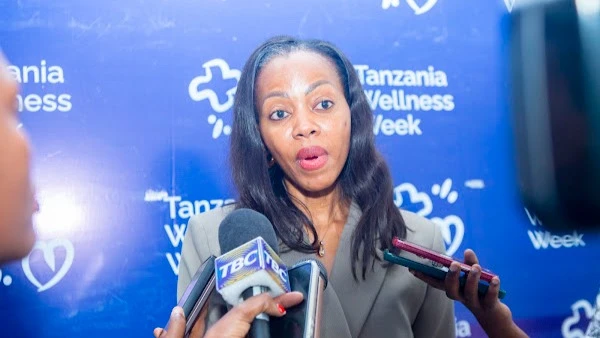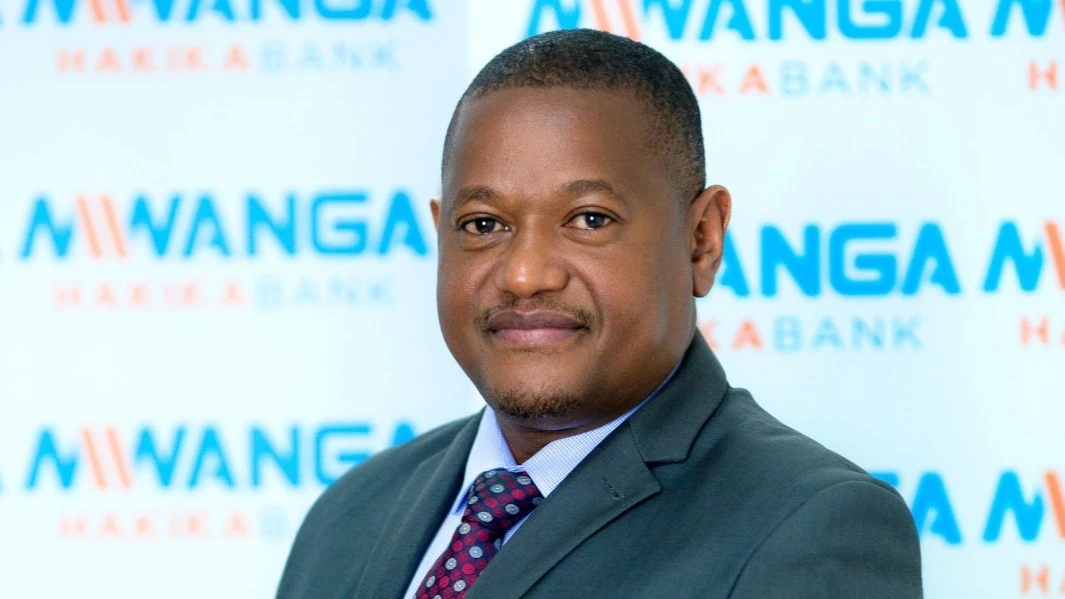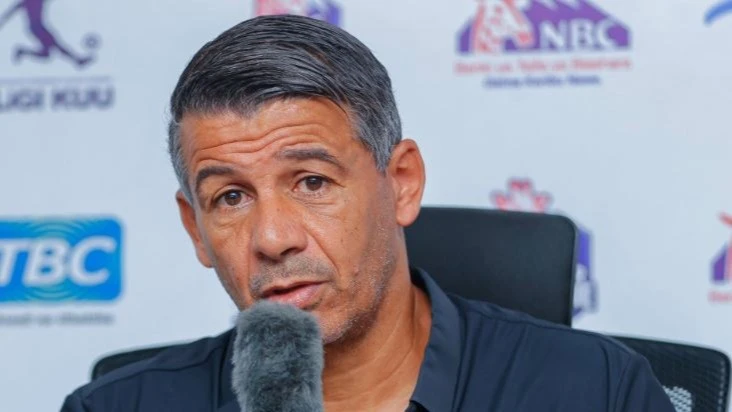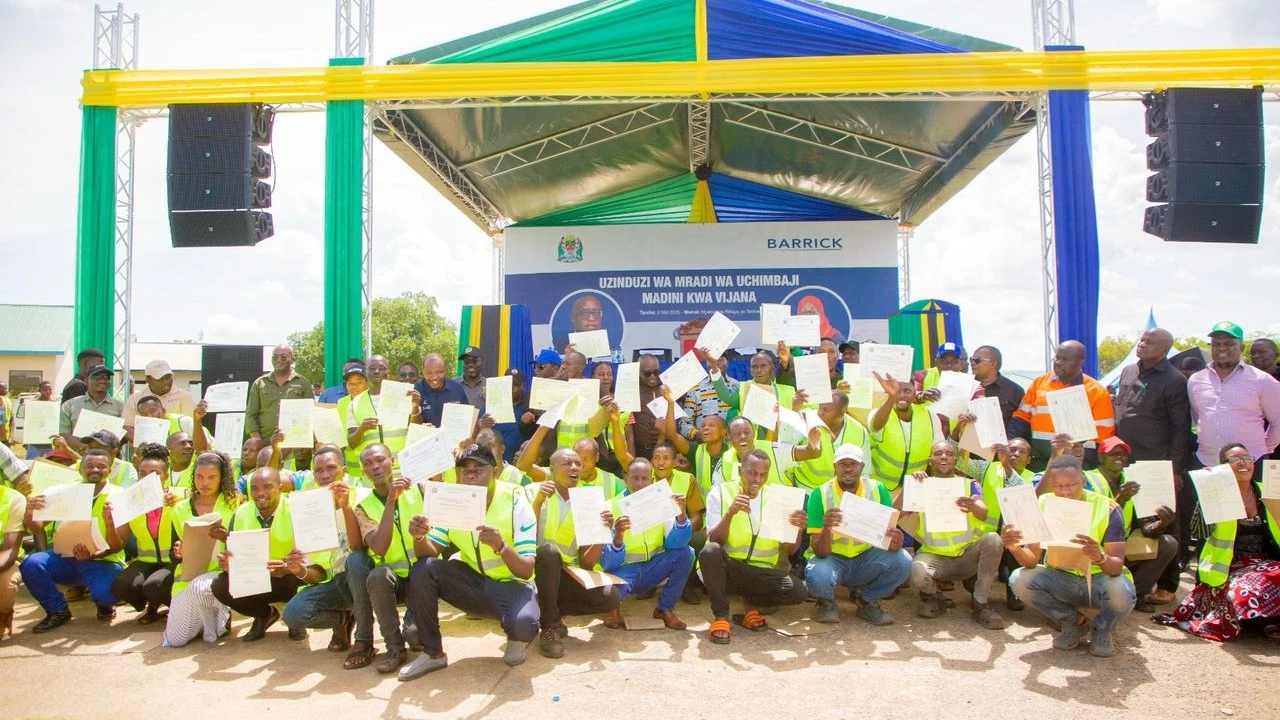Critical minerals to make Tanzania potential exporter in global market

Stakeholders have called on the government of Tanzania to be intentional and strategic in exploring, harvesting, and adding value to its critical minerals.
Speaking during a recent Policy Forum breakfast debate the Women in Mining Operations Chief Executive Officer, Engineer Lightness Salema said a deliberate investment in local capacity, inclusive partnerships, and sustainable practices will ensure that the energy transition becomes a national transformation.
Policy Forum’s debate theme focused on “Critical Minerals and Tanzania’s Energy Transition: Seizing Opportunities While Learning from the Past.”
She noted “The future of mining in Tanzania must be inclusive, innovative, and sustainable—empowering our people while securing our nation’s prosperity.”
Salema has urged the government to ensure the mining sector in the country learns from past challenges to ensure that the exploitation of critical minerals occurs in a sustainable and responsible manner so as to ensure Tanzania becomes a significant exporter in the global market.
Historical issues, such as tax avoidance, illicit financial flows, and contract capacity, social impact: Community displacement and weak corporate social responsibility (CSR). Environmental degradation: Poor rehabilitation of mining sites and deforestation.
Missed opportunities: Lack of refineries and local processing plants leading to low economic multipliers. Saying all these social conflicts arising from mining operations, must be addressed through comprehensive regulatory frameworks.
Policymakers should prioritize stakeholder engagement, ensuring that local communities are consulted and benefit from mining activities.
By promoting transparency and accountability within the mining sector, Tanzania can build public trust and safeguard the interests of its citizens while advancing its energy.
She further noted that strategic partnerships with international markets and companies focused on renewable energy technologies can enhance the country's position in the global economy.
Salema further noted “By developing a clear export strategy that aligns with global demand trends and sustainability criteria, Tanzania can capitalize on its mineral wealth while contributing to the global energy transition.”
Critical minerals refer to a specific subset of minerals that are essential for the production of various technologies and applications, particularly in the contexts of renewable energy, electric vehicles, and high-tech industries.
These minerals, such as lithium, graphite, copper, cobalt, nickel, and rare earth elements, play a pivotal role in the manufacturing of batteries, solar panels, wind turbines, and other components crucial for achieving a sustainable energy transition.
The importance of critical minerals extends beyond their immediate industrial applications. As the global demand for clean energy technologies surges, the strategic management of these resources has become a key focus for national and international policymakers.
In Tanzania, the development of a robust critical minerals sector could position the country as a significant player in the global marketplace, attracting investment and fostering innovation.
Moreover, the effective utilization of critical minerals can contribute to energy security and independence, thereby enhancing the resilience of Tanzania's economy against external shocks while promoting sustainable development.
Policymakers must implement regulations that promote responsible mining practices, prioritize local community engagement, and safeguard the environment, thereby ensuring that Tanzania's mineral resources benefit current and future generations.
The global landscape for critical minerals is rapidly evolving, influenced by technological advancements, geopolitical dynamics, and environmental considerations.
As countries strive to secure their supply chains for these essential resources, Tanzania must adopt a proactive stance.
By fostering partnerships with international stakeholders, investing in research and development, and enhancing local capacities, Tanzania can effectively navigate the complexities of the critical minerals market.
This collaborative approach will not only bolster the nation's position in the global supply chain but also create opportunities for job creation and skill development within local communities.
The definition and importance of critical minerals underscore their central role in facilitating Tanzania's energy transition. The strategic management of these resources can unlock significant economic potential while supporting environmental sustainability.
For policymakers, miners, and the Ministry of Mining, understanding the multifaceted nature of critical minerals is essential for crafting informed strategies that capitalize on existing opportunities while learning from past experiences.
By embracing a sustainable and inclusive approach to mineral development, Tanzania can emerge as a leader in the global shift towards a greener economy.
Tanzania is endowed with a diverse array of mineral resources that play a crucial role in its economy and have significant potential for contributing to a sustainable energy transition. The country is recognized for its substantial deposits of gold, gemstones, and industrial minerals, but emerging critical minerals such as lithium, cobalt, and rare earth elements are gaining attention.
These critical minerals are vital for the production of batteries, renewable energy technologies, and other applications essential for a low-carbon future.
Tanzania's rich geological formations also harbor significant deposits of lithium and graphite, both of which are essential for battery production. With the global shift towards electric vehicles and renewable energy storage solutions, the demand for lithium is expected to soar.
Tanzania's potential lithium projects, such as those in the southern regions, present a unique opportunity for the country to position itself as a key player in the global supply chain of critical minerals.
Enhanced exploration and investment in these resources can lead to the establishment of a robust mining sector that supports both economic growth and environmental sustainability.
Furthermore, the presence of rare earth elements in Tanzania, particularly in regions such as the Ngualla Mountain, underscores the importance of strategic resource management. These elements are crucial for various high-tech applications, including wind turbines and electric motors.
However, the extraction and processing of rare earths require specialized technologies and expertise, which necessitates collaboration between the government, private sector, and international partners.
Developing a clear regulatory framework that encourages responsible mining practices will be vital in maximizing the benefits of these resources while minimizing environmental impacts.
For his part Adavale Resources Tanzania Limited's General Manager, Gerald Mturi, has emphasised on the need for further legal and regulatory reforms to harness Tanzania’s critical mineral resources.
He has suggested reforms to the Tanzania Mineral Act, claiming that the current structure was discouraging exploration.
According to him, accessing a mining exploration licence near reserves required supplementary approvals from various bodies, including the Tanzania Forest Services Agency (TFS), the Tanzania Wildlife Management Authority (TAWA), and the National Environment Management Council (NEMC).
“I suggest the establishment of a One-Stop Centre at the Mining Commission, where representatives from these agencies could issue all necessary permits, including Environmental Impact Assessments.”
He argued that this streamlined process would greatly improve the efficiency of the country’s mining operations.
“Electricity supply was another major hurdle. Power generation was insufficient, and transmission infrastructure was inadequate. It took 25 years for Geita Gold Mine (GGM) to be connected to the national grid,” he explained.
While the power supply has improved, he noted that transmission remains a challenge. The regulatory framework has also evolved, with amendments to the Mining Act in 2017 and 2018, which introduced Corporate Social Responsibility (CSR) and Local Content Regulations.
These amendments enabled Tanzanian businesses to supply consumables to mines—an area previously dominated by foreign suppliers.
“In the past, local firms would win tenders but fail to sustain supply, forcing mining companies to look abroad. That has changed, with more Tanzanian-run businesses thriving in the sector,” he said.
Asusa Creative Writers Initiative Programme adviser Dariah Clemence has urged the government to involve all stakeholders in the mining sector, as it does in youth policies and other areas.
According to her, active participation is crucial, as engagement in the mining industry remains limited.
Executive Secretary of the Tanzania United Contractors and Allied Services Association (TUCASA), Clement Mworia, raised concerns over the status of the country’s copper concentrates.
Calvin Mmary of the Mentorship to Youth on Development and Global Change Organisation (MYDEGC) criticised public officials for shifting priorities after assuming office.
Top Headlines
© 2025 IPPMEDIA.COM. ALL RIGHTS RESERVED

























